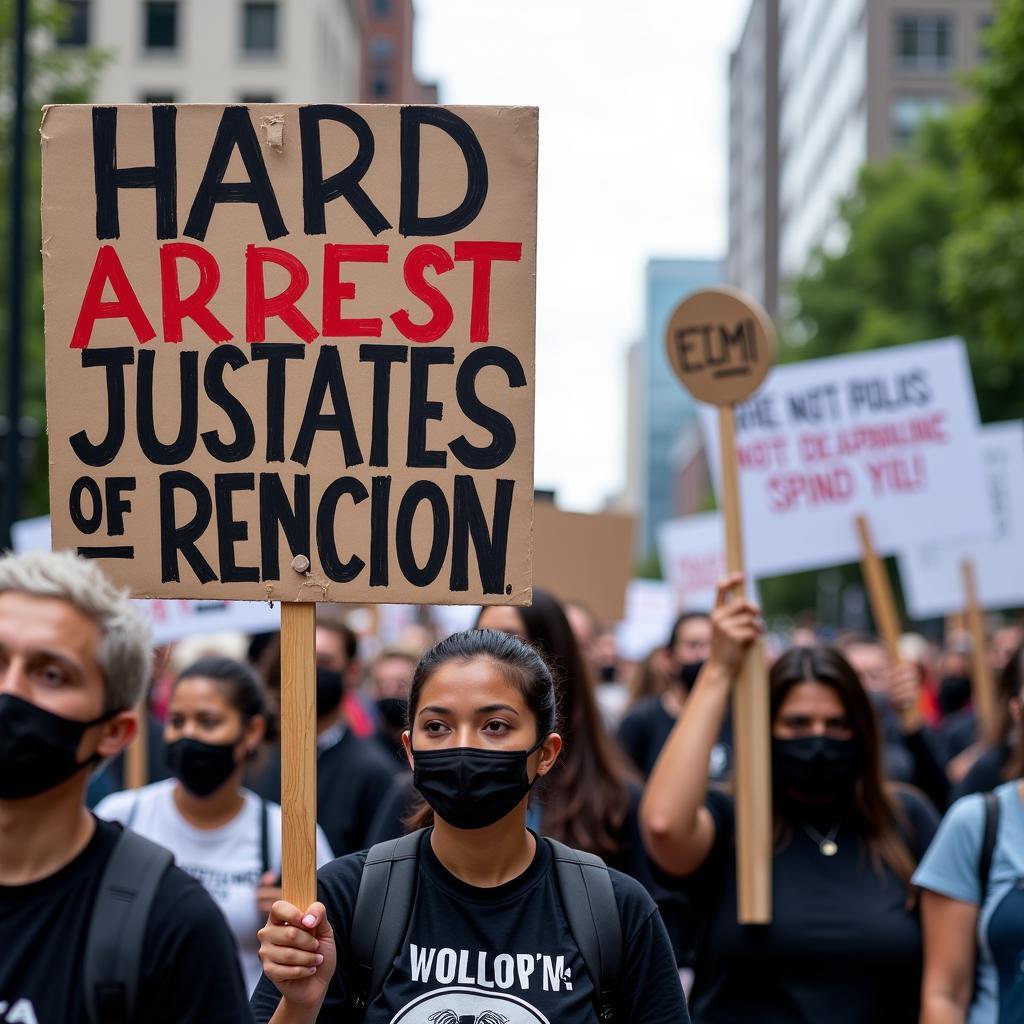African American Drug Offenses: Unraveling the Complexities
African American Drug Offenses represent a critical and often misunderstood aspect of the American justice system. This article delves into the historical context, systemic factors, and societal implications surrounding this complex issue. We’ll examine how racial disparities in drug arrests, prosecutions, and sentencing contribute to mass incarceration and perpetuate cycles of poverty and inequality within the African American community. After the introduction, we’ll explore the social, economic, and political forces that have shaped this landscape and discuss potential avenues for reform.
The War on Drugs and Its Impact on African American Communities
The “War on Drugs,” initiated in the 1980s, had a disproportionately negative impact on African American communities. Despite similar rates of drug use across racial groups, African Americans were, and continue to be, targeted and arrested for drug offenses at significantly higher rates than white Americans. This african american drug use highlights the racial bias inherent within the system. This disparity stems from factors such as racially biased policing practices, harsher sentencing guidelines for certain drugs predominantly used in African American communities (like crack cocaine), and limited access to legal resources and adequate representation.
What were the consequences of this disproportionate targeting? Increased incarceration rates devastated families, disrupted communities, and contributed to a cycle of poverty and limited opportunities for generations of African Americans.
Socioeconomic Factors Contributing to Drug Offenses
Beyond discriminatory law enforcement practices, socioeconomic factors play a significant role in drug involvement within African American communities. Historical and ongoing systemic racism has created barriers to education, employment, and economic mobility, leading to concentrated poverty and limited opportunities. These conditions can create a sense of hopelessness and despair, making individuals more vulnerable to substance abuse and involvement in the drug trade. Understanding african american social issues throughout history provides a broader context.
How do we address these complex challenges? By investing in underserved communities, creating job training programs, and promoting educational opportunities, we can help break the cycle of poverty and reduce the factors that contribute to drug offenses.
Dr. Kendra Nelson, a leading sociologist specializing in racial inequality, emphasizes, “Addressing the root causes of drug involvement, such as poverty and lack of opportunity, is crucial to achieving meaningful and lasting change.”
Reforming the Justice System: A Path Toward Equity
Reforming the criminal justice system is essential to addressing the issue of African American drug offenses. This includes implementing policies that reduce racial bias in policing, eliminating mandatory minimum sentencing laws for non-violent drug offenses, and investing in drug treatment and rehabilitation programs rather than incarceration. African american incarceration statistics 2019 reveal the urgency of these reforms. Furthermore, ensuring access to legal representation and advocating for restorative justice practices can help create a more equitable and just system.
The Fear of Incarceration and its Psychological Impact
The fear of incarceration is a pervasive reality for many young African Americans. Knowing the risks and the potential consequences of being caught in the system can create significant psychological stress and anxiety. African american young afraid to be in prison sheds light on this issue. This fear can impact their decision-making, limit their opportunities, and hinder their overall well-being.
 Criminal Justice Reform: Addressing Racial Bias in Drug Offenses
Criminal Justice Reform: Addressing Racial Bias in Drug Offenses
Conclusion: Moving Towards a Just and Equitable Future
African American drug offenses are a complex issue deeply rooted in systemic racism and socioeconomic disparities. By acknowledging these factors, advocating for criminal justice reform, and investing in community-based solutions, we can work towards a more just and equitable future for all. Addressing african american drug offenses requires a multi-faceted approach that focuses on both individual and systemic change. African american incarceration statistics 2018 provide a valuable baseline for measuring progress in reducing incarceration rates. This is not simply a legal issue; it’s a social justice issue that demands our collective attention and action.
When support is needed, contact Phone Number: +255768904061, Email: kaka.mag@gmail.com Or visit: Mbarali DC Mawindi, Kangaga, Tanzania. We have a 24/7 customer service team.




